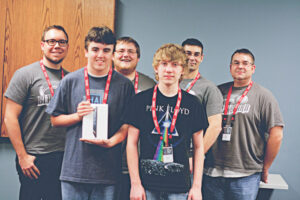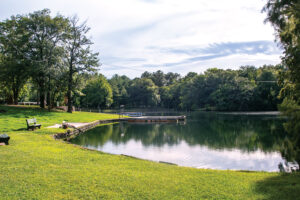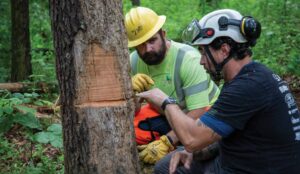Southern Illinois native Dav Glass, a self-proclaimed geek, made a name for himself in California’s Silicon Valley as a software architect and engineer with Yahoo. When a new position with the search engine giant gave him the opportunity to return to Marion, Ill. and work from home, he jumped at the chance. His relocation, however, presented a problem.
“When I moved back, I was looking for others like me; for a tech community to hang out with, but it was tough,” he recalls. “I found a few here and there. Technology isn’t a focused study in southern Illinois, yet there are lots of students and people in the area that are intrigued by it.”
Glass came up with the idea to gather all of these “hackers” together to collaborate and to build software, applications, devices, projects and whatever they wanted over 24 hours, and then show off their products to each other. After securing a handful of sponsorships to make the event free, and arranging for meeting space at Southern Illinois University’s Research Park, the first HackSI (the SI standing for southern Illinois) was launched in 2013. He was expecting 20 or 30 people to participate and was amazed when 140 participants showed up.
“When they were done, they asked for more,” he recalls. Now it’s turned into an annual event, held each fall.
Hackathons or hackfests, as they are sometimes called, are simply gatherings of computer programmers, information technology students, graphic designers and others who get together and “hack.”
 “It’s a friendly competitive environment,” Will Blankenship, one of the organizers for the annual HackSI, said in a television interview. “There are a lot of people throughout our region who are really passionate about this and throughout the year they have few creative outlets. It’s hard for them to connect with others who are also passionate, so we offer an outlet for that. It’s exciting to see people across all age groups connecting with technology.”
“It’s a friendly competitive environment,” Will Blankenship, one of the organizers for the annual HackSI, said in a television interview. “There are a lot of people throughout our region who are really passionate about this and throughout the year they have few creative outlets. It’s hard for them to connect with others who are also passionate, so we offer an outlet for that. It’s exciting to see people across all age groups connecting with technology.”
While similar 24-hour events go around the clock, HackSI schedules two 12-hour sessions over a weekend. “More than half of our participants are high school students,” Glass says. He adds that one participant in last year’s event was a 9-year-old. “He was the first one at the door both days,” he says.
He’s proud of the students that participate and is a large advocate for technology education. He even coaches several high school robotics teams and says that students often do better in the friendly competition than their professional counterparts.
“I’m very focused on increasing the support for STEM-related (science, technology, engineering and mathematics) programs for school-aged children. Technology is the wave of the future. You never know, one of these kids could be building robots on Mars soon.”
At the gathering, hackers work on everything from robotics to setting up their own computer network servers, if they’ve never done it before. Some work on applications for smart phones, and work with drones has become more popular. “The first year we had just one drone flying around the building. There were 30 last year,” he says. A professional drone technician even lent a hand during the 2016 HackSI.
 At the end of the hackathon, participants give a brief presentation about their own projects. “It’s a chance for them to show off what they’ve worked on in front of a group of like-minded people and have them cheered them on for what they were able to accomplish,” Glass says. “Geeks are usually introverts, but if you put 100 to 150 of them in a room together with a shared commonalty and let them do what they want, it’s very powerful for them. Everyone they present to understands what they did.”
At the end of the hackathon, participants give a brief presentation about their own projects. “It’s a chance for them to show off what they’ve worked on in front of a group of like-minded people and have them cheered them on for what they were able to accomplish,” Glass says. “Geeks are usually introverts, but if you put 100 to 150 of them in a room together with a shared commonalty and let them do what they want, it’s very powerful for them. Everyone they present to understands what they did.”
The projects they show off range from self-flying drones to a headset that allows the wearer to control Christmas lights using just brain waves.
Darryl Jones of Murphysboro, who helps coordinate the hackathon says the event is designed to give attendees freedom to work on whatever they desire.
“You don’t have restrictions that come from a boss or a client or your own daily to-do list,” Jones says. “If you want to figure out how to roll your windows up in your car, go for it. If you want to use hand gestures to control a remote control helicopter, go for it. If you want to create a website or app or anything like that, go for it. It’s about that freedom to create.”
Glass says he hopes HackSI continues to grow. “I want it bigger and I hope that we can do more than one a year. We’ve already had high schools from other areas of the state say they might bring some students down this year.
“For me, it’s all about the participants connecting and learning something new while challenging themselves,” he says. “If just one person learns something and that causes them to start looking at a career in technology, I feel like it’s been a success.”










